Keywords: Civil War
There are more than 200 results, only the first 200 are displayed here.
-
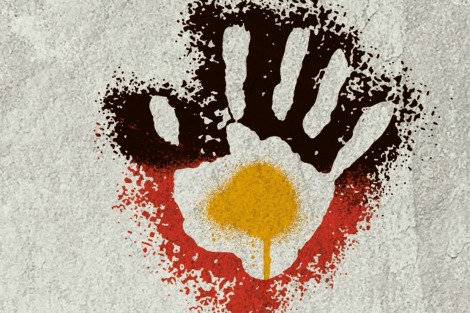
AUSTRALIA
- Frank Brennan
- 15 January 2016
9 Comments
It is now more than three years (and three prime ministers) since the expert panel set up by the Gillard government reported on how the Constitution might be amended to provide recognition of Aboriginal and Torres Strait Islander peoples. When I read the report, my heart sank. It had put forward a comprehensive, but unachievable and unworkable proposal for change. The lesson from 1967 is that a modest change carried overwhelmingly by the Australian people provides the impetus for change.
READ MORE 
-
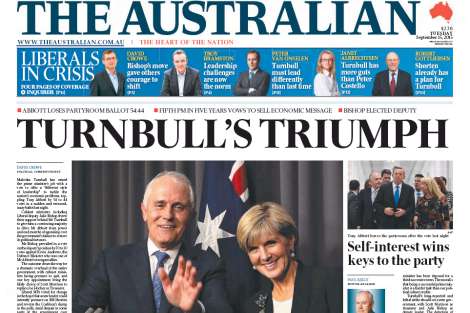
AUSTRALIA
- Tony Kevin
- 13 January 2016
5 Comments
Now is an exciting moment for Australia, after all the low points of the past two years. We can look forward to a real return to greater civil discourse and intellectual integrity in politics. It will be good if the parties can set aside the negative energy that was brought to the Parliament and return to an informed contest of ideas, for there is much to debate.
READ MORE 
-
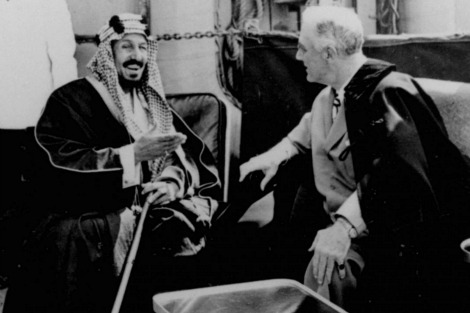
ECONOMICS
- David James
- 15 December 2015
3 Comments
In the early 1990s, America, Europe and Japan accounted for about 90 per cent of world GDP. Now, they account for less than half. The BRICs and other developing nations have grown steadily (in China's case spectacularly) while Europe has stagnated and America has sputtered at best. Recent developments in the geopolitics of fossil fuels and in finance confirm the perception that the rise of China and the developing world spells the end of US global hegemony. Against this backdrop, the narrative of the West has grown increasingly incoherent.
READ MORE 
-
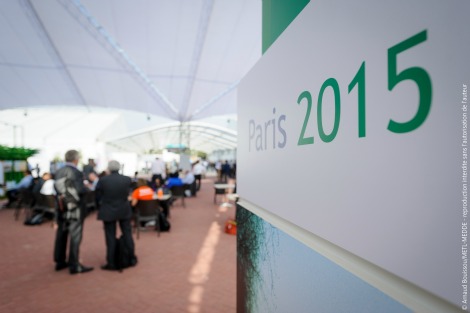
INTERNATIONAL
- Bronwyn Lay
- 10 December 2015
3 Comments
Located in Paris in the aftermath of the attacks, COP21 spookily mirrors how climate change politics occurs within complex and pre-existing power structures that determine its effectiveness. Social and environmental wars merge with increasing intensity: from Syria to the Arctic, from Indonesia to Paris. Climate change complexity matches the complexity of terrorism. Causal chains of social conflict are as complicated as carbon movements that result in environmental distress.
READ MORE 
-

AUSTRALIA
- Frank Brennan
- 10 December 2015
I first met this Tony on my regular visits here to Darwin when he was working at the North Australian Aboriginal Legal Aid Service and then when he set up the mediation services under the auspices of Anglicare. In later years I knew him when he was your Anti-Discrimination Commissioner. He was a quiet, considered, gentle, strong and principled man. On Human Rights Day, it is only fitting that I honour Tony by offering some reflections on the architecture for human rights in Australia, on the contemporary human rights controversies, and on the way forward for better protection of the human rights of Aborigines and asylum seekers, two marginalised groups who had a special claim on Tony's sympathies.
READ MORE
-
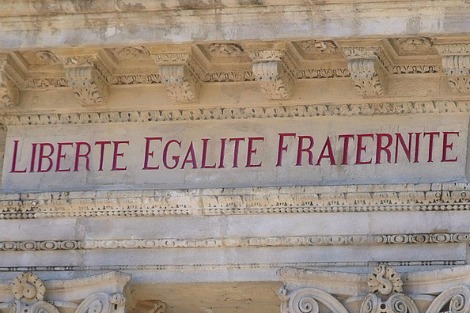
INTERNATIONAL
- Andrew Hamilton
- 19 November 2015
19 Comments
The mass murder of unarmed civilians in Paris last weekend was appalling. Whether considered as an act of war or of terror, it was indefensible. The themes of war against terrorism and victory have dominated commentary on the killings. In light of the fact that the war against terror was the seedbed in which IS grew, they demand serious reflection. We should ask precisely what our enemy is attacking, what therefore must be defended, and what will be the signs of victory or defeat.
READ MORE 
-
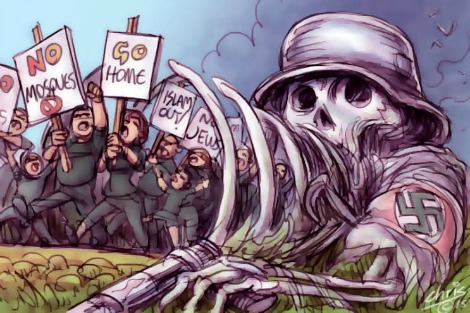
MEDIA
- Jeff Sparrow
- 17 November 2015
15 Comments
In journalism, 'he said, she said' often functions as an evasion. Reporters' loyalty should be to accuracy, which isn't about compromise between extremes. When denialists and climate scientists take diametrically opposed stances, the truth doesn't lie somewhere in the middle. Sometimes, one side's right and the other's just wrong. The same can be said of reporting about the rightwing United Patriots Front. While they deny being fascists, that's what they are, and that's what we should call them.
READ MORE 
-

INTERNATIONAL
- Chris Middleton
- 16 November 2015
14 Comments
In many of these conflicts religious difference constitutes an important element in the conflict. Some commentators point to religion as the cause of many of humankind's wars. In a sense they are correct, as they would be also if they ascribed war to humankind's quest for liberty, equality, justice, or even love. It is a paradox of the human condition that that which is noblest in the human often gives way to violence and intolerance. How are we supposed to react to such an attack?
READ MORE 
-

AUSTRALIA
- Frank Brennan
- 19 October 2015
7 Comments
It is now more than three years (and three prime ministers) since the expert panel set up by the Gillard government reported on how the Constitution might be amended to provide recognition of Aboriginal and Torres Strait Islander peoples. When I read the report, my heart sank. It had put forward a comprehensive, but unachievable and unworkable proposal for change. The lesson from 1967 is that a modest change carried overwhelmingly by the Australian people provides the impetus for change.
READ MORE 
-
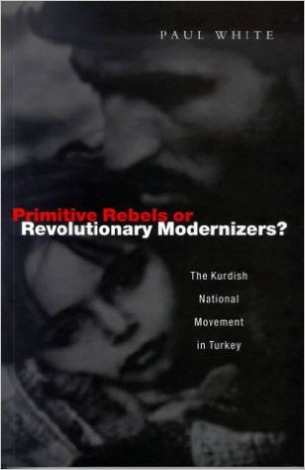
INTERNATIONAL
- Paul White
- 16 October 2015
1 Comment
Last Saturday's bomb blasts in the Turkish capital Ankara, which left 128 dead and some 246 wounded, occurred in the wake of the ruling AK Party's recent electoral defeat and its decision to call a fresh election. Since losing the election, President Erdoğan has effectively dumped a peace deal with the Kurdish nationalist PKK and restarted Ankara's war against the Kurdish people. Dark dies lie ahead for ordinary Turks and Kurds in Turkey until the grip of ultranationalism is broken.
READ MORE 
-

AUSTRALIA
- Frank Brennan
- 16 October 2015
2 Comments
I acknowledge those Aborigines and Torres Strait Islanders who insist that they have never ceded their sovereignty to the rest of us. I join with those Aborigines and Torres Strait Islanders who hope for better days when they are recognised in the Australian Constitution. As an advocate for modest constitutional recognition for Indigenous Australians, I respect those Aborigines and Torres Strait Islanders who question the utility of such recognition. But I do take heart from President Obama's line in his Charleston eulogy for the late Reverend Clementa C. Pinckney: 'Justice grows out of recognition'.
READ MORE
-
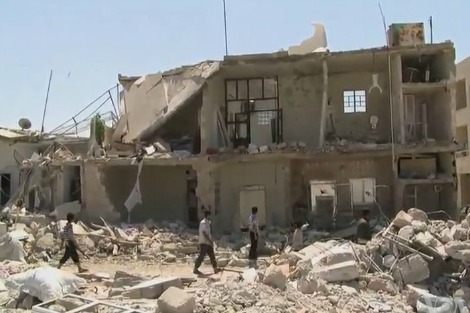
INTERNATIONAL
- Justin Glyn
- 06 October 2015
6 Comments
The Syrian government are no angels, and any more bombing raids on an already heavily bombed and traumatised population is unlikely to improve the situation for civilians. However, the American claim that the Russians have a poor record in this respect smacks of hypocrisy, given the US's admitted destruction last week of a Médecins Sans Frontières hospital in Afghanistan at the cost of 22 lives. Moscow's policy at least has the merits of legality, intelligibility and consistency.
READ MORE 